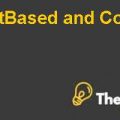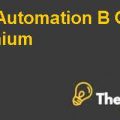The audit of SSM Case Study Solution
Appropriate Personnel who have knowledge regarding the related party Transactions:
There can be many individuals in the Steve’s Shoe Maker (SSM) who possesses the knowledge regarding the related party transactions occur in the financial years, not only this there can be many individuals who possesses the information regarding the personnel who have material relation with any related party. The individuals can gain knowledge by performing their professional duties and they can also gain knowledge regarding the connection from their personal relationship with the colleagues. The following personnel can be approached in order to obtain knowledge regarding the related party transactions:
Helen Volk (HR Manager):
It can be said that HR manager might have all the relevant knowledge regarding the related party transactions and the employee who have any material connections with the another company or person and which makes the other company or personnel a related party. The internal control system of SSM also allows the HR manager to know about the actual and potential related party transactions.
Jonathan Edwards (Director of legal department):
The director of legal department can also have all the information regarding the related party transaction because as per the internal control systems, the legal department must also review the representation which includes all the related party transactions.
Lars Frolander (Chief Financial Officer:
The chief financial officer can also know and can identify the related party transaction because of the fact that every transaction must have to pass from the accounting and finance department which makes it highly likely that the CFO knows about these transaction.
Hector Mendez (Internal Audit manager):
The primary duty of the internal auditor is to identify the deficiencies in the internal control systems and to identify the transaction which can be considered as risky and which the management might want to conceal from the stockholders. It can be argued that effective internal audit department can have access to all the information regarding the sensitive transactions which enables them to discuss these transaction with the auditor.
Assessment of controls and process:
As the related party transactions are material by nature and are very sensitive, it usually requires highly sophisticated internal control systems in order to identify the related party transactions on a timely basis. The internal control system of SSM regarding the identification of related party transactions are not enough to identify all the related party transactions. It might be possible that the employee will conceal its relation with another entity at the time of hiring, systems of SSM will fail to identify the transaction when the employee conceal the information. Furthermore, the identification of interest are only made at the hiring, it might be possible that there is no relation of employee with any other entity at the time of hiring but the relationship might develop in the subsequent periods. There are no system in place which can identify subsequent relations of employee. In addition to this, the HR director only identifies the employee’s significant ownership stake, it is possible that any immediate family member of the employees have significant stake in the company which can make this related party transaction, the system fails to identify this as well.
Process and systems management should have to consider:
The management must have to develop internal control systems in such manner that could identify the related party transactions on timely basis. The management of SSM should have to design systems that continuously update the database and information regarding the significant equity stake of all the employees. Currently this process is conducted at the time of induction which can be consider as weakness in the system of SSM. On the other hand, the HR department and internal audit department should also have to review the record maintain by the legal department in order to ensure the authenticity and accuracy of the data. Furthermore, the management also have to encourage the employees to disclose the potential related party transaction, this process is effectively known as “whistle blowing” arrangement.
Procedures:
- The auditor should have to enquire from management regarding the related party transaction.(Putra, 2010)
- Select a sample of transactions and take conformation from third party in order to identify the related party transactions.
- Obtain the written representation letter from management regarding the disclosure of all the related parties’ transactions.
- Review the financial statement to ensure that adequate disclosures are presented in the financial statements.(Laudato, 2015)
Implications on the audit:
If any related party transaction is identified during the completion of audit testing, the auditor should have to perform detail substantive testing in order to ensure the accuracy and completeness of the transaction. The auditor should have to force management to amend the financial statements and to disclose the transaction in the financial statements. If the management refuses to amend the financial statements, the auditor should have to modify the audit report and should have to give the qualify opinion if the transaction is material. And if the transaction is pervasive, the audit should have to give adverse opinion.....................
This is just a sample partial case solution. Please place the order on the website to order your own originally done case solution.













